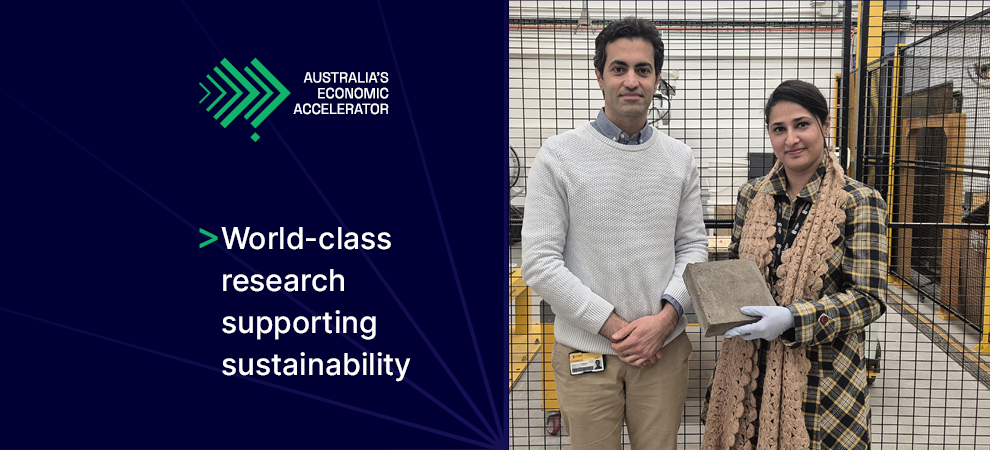Australia’s universities are home to some of the brightest minds in the world, consistently generating breakthroughs that can transform industries and services to create the jobs of tomorrow.
The Australian Government is supporting research translation and commercialisation through a
$1.6 billion investment in Australia’s Economic Accelerator (AEA).
The program is funding projects that align with national priorities to take innovative ideas through to proof-of-concept and proof-of-scale as projects progress towards commercialisation and the creation of new businesses.
The AEA Seed pilot program has invested more than $26 million in nearly 100 research projects across the country. Read about some of the exciting developments.
A greener approach to olive production
In good news for olive lovers, Australian olives could soon be healthier and more flavourful.
Through the ‘Olives the Australian Way’ project, the University of South Australia, is developing a cleaner, greener way to produce olives.
Traditional methods for preparing olives can be harsh on the environment and the olives themselves, leading to a loss of natural flavours and more than a thousand litres of water waste per tonne of olives.
The Australian olive industry is worth over $210 million and has been steadily growing, with an increasing demand for healthy and gourmet food products and a focus on producing high-quality olives and olive oil.
By creating a more sustainable olive, Australia has an opportunity to be a key player in the global olive market, worth billions of dollars each year.
The project also aims to double Australia's olive plantations by 2035 and create thousands of rural and regional jobs.
Reducing the carbon footprint of concrete
Cement and concrete production generate around 8% of global emissions every year. This makes cement production the world's single biggest industrial cause of carbon pollution.
Researchers at the University of New South Wales, in collaboration with Abdri and Australian Steel Mill Services, have successfully created a low-carbon concrete mix that replaces 50% of cement with a by-product of the steel-making process called slag.
This not only reduces the carbon footprint of concrete but also significantly enhances its strength and durability.
The project’s Lead Entrepreneur Dr Ali Kashani said AEA Seed funding has been pivotal in enabling the development of innovative low-carbon concrete technologies.
"Through this project, we're not only cutting down on carbon emissions but also transforming industrial waste into valuable construction materials, paving the way for a sustainable future," Dr Kashani said.
This phase is focused on developing a high-quality, cost-effective prototype for commercialisation. The team is also conducting a comprehensive cost and supply chain analysis in collaboration with industry partners to ensure the product is both commercially viable and scalable.
As the country transitions towards a net zero future, this pioneering project is leading the charge toward a more sustainable future in construction.
To read more AEA case studies, visit AEA News and Media.

